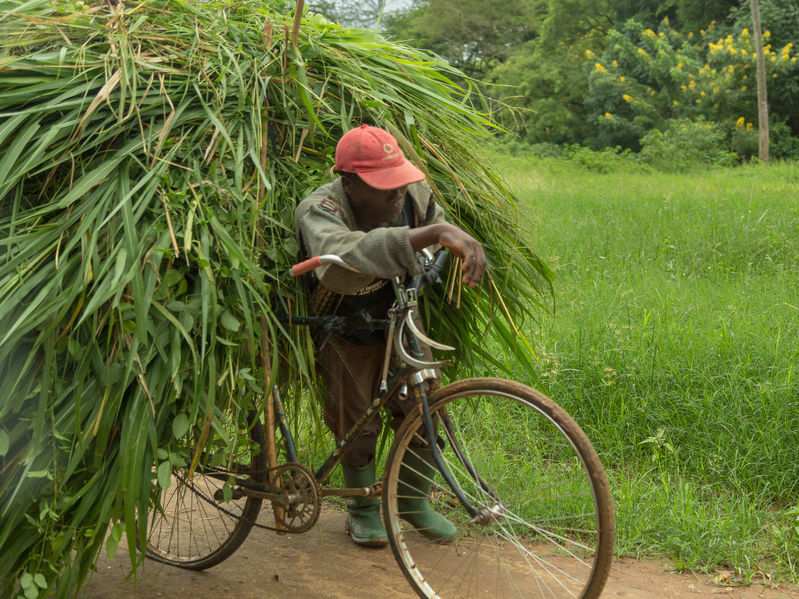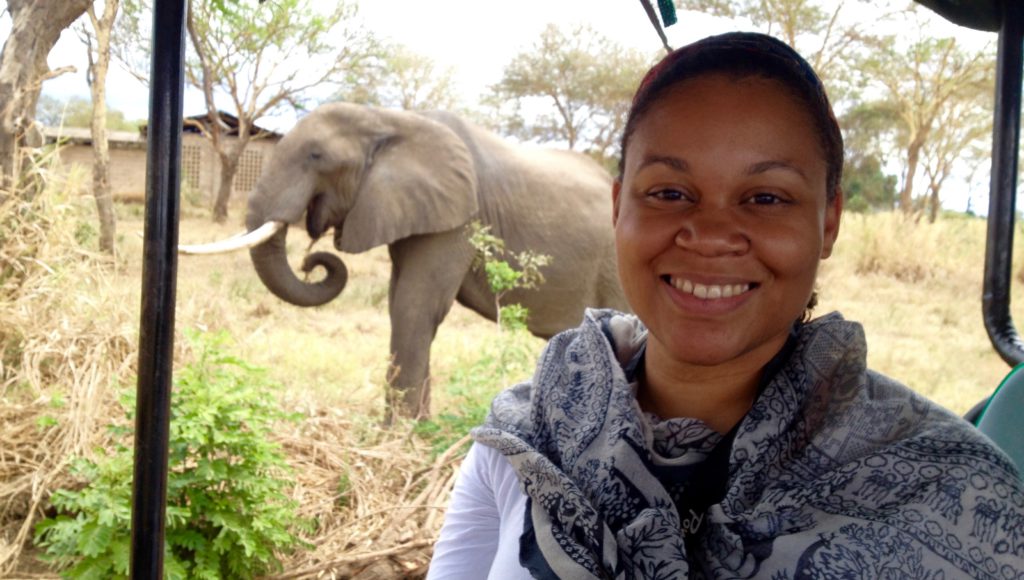The Mickey Leland International Hunger Fellows Program is a two-year fellowship that combines field and policy work aimed at poverty alleviation and improving food security. Fellows are placed in organizations working on public health initiatives, nutrition programs and agricultural development research in Africa, Asia and Latin America. Fellows are provided with training sessions and professional development funds to gain technical skills in areas related to food security, development policy analysis and nutrition. Guest author Michelle DeFreese discusses her experience on the Leland Fellowship and her fellowship application tips. To learn more about applying to become a Mickey Leland Fellow, visit the application page of the Congressional Hunger Center’s website.
By Guest Author Michelle DeFreese
When I first became interested in applying for the Mickey Leland International Hunger Fellowship, I missed the deadline for the 2013-2015 application process. In the two years that followed, I did a lot of self-reflection and background research on what I wanted to do and why I wanted to become a Leland Fellow. I read about the life and work of the fellowship’s namesake, Mickey Leland. I read about his passion for connecting people from different cultures both in the US and internationally. I read about his efforts to push people to see past their ethnic, religious and racial differences and to treat people equally. Especially at this time in the US, his example is something we can learn from today. It is definitely a difficult time in the US in terms of race relations. It’s important to me that I am part of Mickey Leland’s legacy. I want to urge people to move beyond seeing people as colors but to approach each individual first and foremost as a person with equal value to everyone else. The humanity and the legacy he left behind contributed to my desire to become a Leland Fellow.
I knew which values were important to me because I applied to the Leland fellowship mid-career. When I applied to the fellowship, I was in my thirties and had already lived abroad for eight years. I had worked at the International Maize and Wheat Improvement Center (CIMMYT) in Mexico and spent 40% of my time traveling to developing countries in Africa and Asia. Having worked internationally for most of my career, I knew the specific areas that I wanted to work on during my fellowship, such as policy analysis, research methods and new methodologies applied to the assessment and evaluation of food security and nutrition projects. These were all areas I wanted to concentrate on during my fellowship to combine my field experience with more technical skills.
I was selected in 2015 for the Leland Fellowship and placed at the Innovative Agricultural Research Initiative (iAGRI) in Morogoro, Tanzania. Using professional development funds I received through the fellowship, I engaged in coursework in empirical research methods and policy analysis. I also received support from a mentor with whom I could discuss my interests and ideas and obtain advice on which software packages I could integrate into my skillset.

One of the fellowship’s greatest benefits for me has been seeing the process of data collection and analysis from start to finish. I was able to be a part of data collection, project evaluation and assessment team and see firsthand some of the challenges involved in ensuring data quality. I was able to work with Multiple Indicator Cluster Survey (MICS) data for South Sudan through practical training courses I was engaged in and with Tanzania Demographic and Health Survey (DHS) data that I used for my own research purposes. I also worked with a technical working group for data quality assurance, management, analysis, documentation and dissemination of results. Through these experiences, I developed a more holistic view of the challenges of incorporating robust data collection and quality assurance measures into projects. I had the chance to interact with the Ministry of Agriculture to understand country-led priorities and perspectives of some of the challenges policymakers face in decision-making and forming evidence-based policies. I also interacted with USAID and saw the challenges of collecting data from across projects from the perspective of donor organizations.
For prospective fellows applying at a later stage in life, there can be some advantages in terms of knowing what skills will be most beneficial to your career in the future and to look for potential areas to focus on now for your own professional development. Prior to the start of the fellowship, I had an invested in developing a lot of soft skills such as cross-cultural communication, writing, desk research and language skills. I had a background in the social sciences and had years of experience working closely with smallholder farmers. The fellowship helped me to balance this with more technical skills that I could use in data collection, research and analysis.
In addition to skills development, the most valuable aspects of the fellowship are the flexibility, the mentorship and the network. I know that there are some professional development opportunities I would not have had access to if I was not a fellow. I was selected as a Junior Research Task Force member at the 2015 Global Food Security Conference at Cornell University. As a fellow placed in a USAID-funded project, I was able to access training including workshops for Monitoring and Evaluation of Feed the Future projects designed specifically for the implementation of partner organizations and then apply these skills from practical training in different agro-ecological zones of the country. I was also selected to attend and report on the Global Landscapes Forum at the 2015 United Nations Climate Change Conference in Paris and contributed towards publications documenting the impact of the Feed the Future initiative. As part of my work, I was embedded in a team of researchers from Sokoine University of Agriculture (SUA) to assess a large-scale, multi-sectoral nutrition project. I worked on policy briefs addressing key constraints and natural resource management challenges in crop production in irrigation schemes in Tanzania. Through the fellowship network, I also met former fellows working in the US and abroad and was supported by other fellows in my cohort.
Being a fellow allows you to see the different pieces of the puzzle and perspectives form a range of stakeholders. For implementing partners, it’s often a challenge to balance the demonstration of the impact of interventions while maintaining sound data collection standards in terms of attribution. At the same time, a lot of progress has been made to develop improved measures and methodologies to evaluate projects. This is especially true in the area of research methodologies for impact evaluations of multi-sectoral approaches to improving livelihoods.

My advice to anyone interested in the Leland Fellowship is to learn all you can from these different stakeholders. They all contribute towards development outcomes using different approaches and each of them has their own challenges. Also, prospective fellows should remember that you will be working a large part of your life, but you will only be a fellow for a few months or years. It helps to have a plan on which areas you want to develop skills in and pursue those as your fellowship progresses. Having clear goals and consistently sharing them with your supervisor, adviser and mentors will help you identify the skills that you will need to develop and how to incorporate training opportunities that will address them.
Living in Tanzania was a really special experience. One of the things I am proudest of is that I can share this experience with my friends and family and do my part to address negative stereotypes about my host country and about Africa in general. I have six nieces and nephews and I want them to be able to see the world as I do and be open to new experiences no matter where in the world it takes them. The fellowship has been an opportunity for me to not only speak my values, but to live them too.
Michelle DeFreese is a 2015-2017 Mickey Leland International Hunger Fellow based at the Innovative Agricultural Research Initiative (iAGRI) in Morogoro, Tanzania. Originally from New Jersey, Michelle graduated from Rutgers University with a BSc in Anthropology. She completed her MA at the Graduate Institute of International and Development Studies (IHEID) in Geneva, Switzerland. This post does not reflect the official views of the Congressional Hunger Center or iAGRI.
© Victoria Johnson 2016, all rights reserved.
